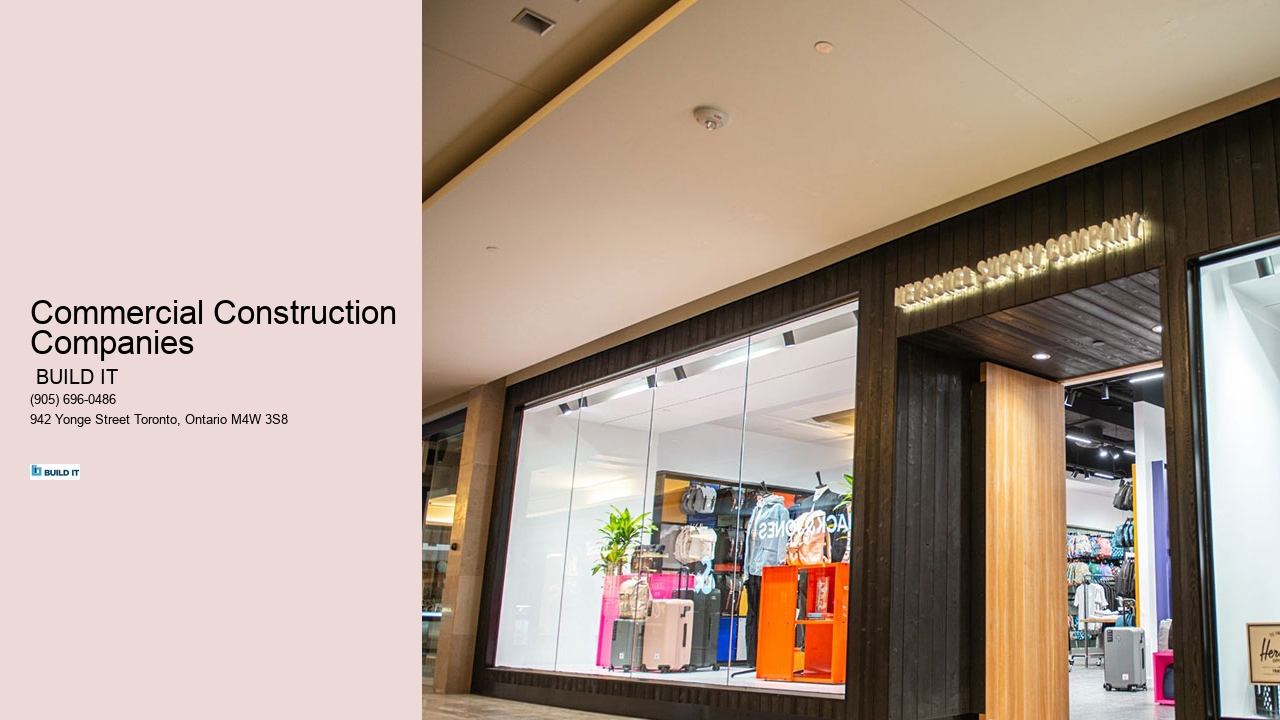

BUILD IT Toronto is proud to shape the spaces where Toronto works, shops, dines, and grows. As commercial and industrial construction specialists, we partner with Canada’s leading brands and entrepreneurs to deliver tailored builds that meet the highest standards of quality, precision, and innovation. Whether it’s a boutique on Queen West, a clinic in North York, or a warehouse in Scarborough, we bring your ideas to life—efficiently and beautifully.
Unlike traditional contractors, we offer full-spectrum service. From the earliest planning stages and permit coordination to design-build management and project delivery, we handle it all in-house. This integrated approach means fewer delays, better accountability, and a smoother client experience.
We know Toronto. Our seasoned team knows how to navigate the city’s zoning laws, work within tight urban footprints, and meet aggressive timelines. Across the GTA—including Mississauga, Vaughan, Etobicoke, and the downtown core—we’ve successfully completed projects that stand as proof of our dedication to detail and quality.
From restaurants and retail to healthcare and franchises, we build spaces that balance form, function, and compliance. Every project is designed with usability, longevity, and brand identity in mind.
At BUILD IT Toronto, we value our clients as true partners. Through open communication and smart scheduling tools, we provide clarity every step of the way. Because to us, transparency is just as important as craftsmanship.
When your physical space plays a vital role in your business success, choose a team that builds with intention. Let’s create a space that reflects your vision—and supports your future.

Effective commercial construction site logistics begin with meticulous planning and coordination. Before ground is broken, project managers must consider site access points, the staging of materials, and the flow of equipment and personnel. A well-thought-out plan takes into account delivery schedules to minimize downtime and ensure that no phase of the construction process is delayed due to logistical oversights. This level of coordination requires clear communication channels among contractors, suppliers, and site managers to anticipate potential disruptions and adapt quickly to changes.
Managing materials on a commercial construction site is a complex task that demands strategic thinking. With large quantities of resources such as steel beams, concrete, glass panels, and more being transported to the site, storage solutions must be both space-efficient and accessible. Furthermore, inventory management systems are increasingly vital in tracking material usage to avoid waste and financial loss. Advanced technologies like barcoding or RFID tagging help keep tabs on inventory levels in real-time, ensuring that projects have what they need when they need it.
Construction sites are inherently hazardous environments which necessitate rigorous safety protocols to protect workers. Logistics play a key role in maintaining a safe workspace by controlling the movement of heavy machinery, clearly demarcating danger zones, and ensuring safety equipment is readily available at all times. Routine inspections are critical for identifying risks related to logistics operations—such as vehicular traffic or crane operation—and implementing corrective actions swiftly.
Sustainability has become an integral part of commercial construction logistic strategies. Contractors are now seeking ways to reduce carbon footprints through efficient route planning for transportation which minimizes fuel consumption and emissions. On-site practices include recycling construction waste where possible and managing water usage thoughtfully during building processes. By focusing on sustainable logistics practices not only does a company demonstrate environmental responsibility but also may realize cost savings over time through resource conservation measures.
| Commercial Construction Firms & Services | |
|---|---|
| Commercial Construction Firms | Experienced firms delivering superior workmanship and project management. |
| Commercial Construction Contractors Near Me | Find reliable contractors in your area for all commercial building needs. |
| Commercial Building Service | Comprehensive solutions from planning to finishing touches. |
| Commercial Design Build Contractors Near Me | Local experts offering integrated design and build services for efficiency. |
| Commercial Construction Company | Reputable company specializing in all phases of commercial development. |
Communication serves as the bedrock upon which successful commercial projects are built. At its core, it facilitates the exchange of ideas, expectations, and concerns between all parties involved in a contract. Proper communication ensures that project objectives are clearly understood and aligned among stakeholders, including clients, contractors, subcontractors, suppliers, and team members. It is through this flow of information that misunderstandings are mitigated and a shared vision is fostered.
In the context of contracts and agreements, communication plays a pivotal role in ensuring that what is delivered matches what was promised. Regular discussions about the progress of work help keep everyone on the same page and allow for adjustments to be made when necessary. This helps prevent scope creep – where the boundaries of what is being delivered expand beyond what was originally agreed upon – which can lead to disputes and dissatisfied clients.
Commercial projects often involve complex operations that require coordinated efforts across various disciplines. Effective communication channels enable teams to navigate these complexities by sharing expertise and making collective decisions based on comprehensive insights. When all contributors can communicate seamlessly, risks are identified more promptly, solutions are developed collaboratively, and projects stay on track.
No project is immune to challenges or unforeseen events; however, how these situations are communicated can mean the difference between rapid resolution or escalating problems. In times of crisis or conflict within a project’s lifecycle, clear and honest communication becomes even more critical. It enables quick dissemination of information regarding issues at hand while fostering an environment where proactive measures are encouraged over reactive ones.
Ultimately, successful communication in commercial projects goes beyond mere transactions; it builds lasting relationships based on trust and understanding between contracting parties. These bonds contribute significantly to repeat business and referrals which are essential for long-term success in any commercial endeavor. By prioritizing effective communication throughout every phase of a project's execution from contract negotiation to final delivery - businesses stand to create not only profitable outcomes but also strong networks within their industries.

Institutional firms handle schools, hospitals, and government buildings; commercial firms focus on business structures.
Commercial GCs handle larger, code-intensive projects like offices or retail spaces, while residential focus on homes.
It starts with planning, budgeting, design, permitting, then moves to construction and final inspection.
Project size, weather, permitting, material availability, labor, and design changes all play a role.